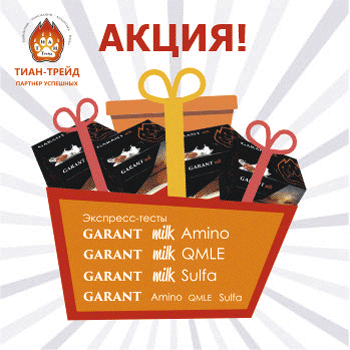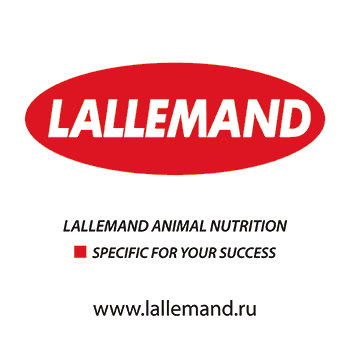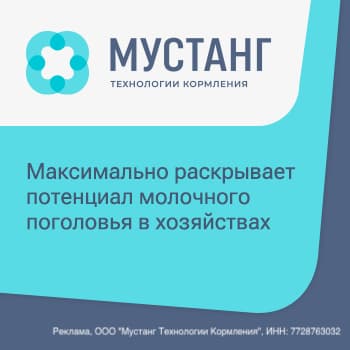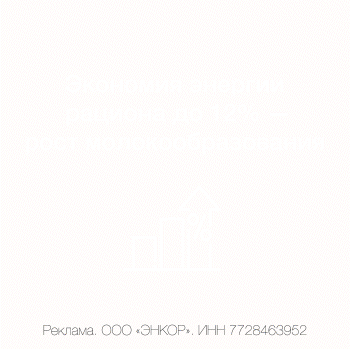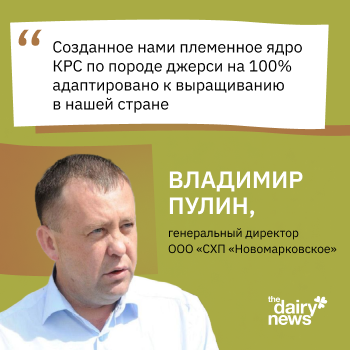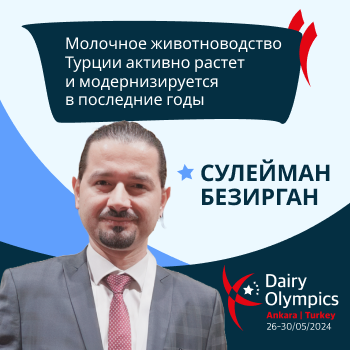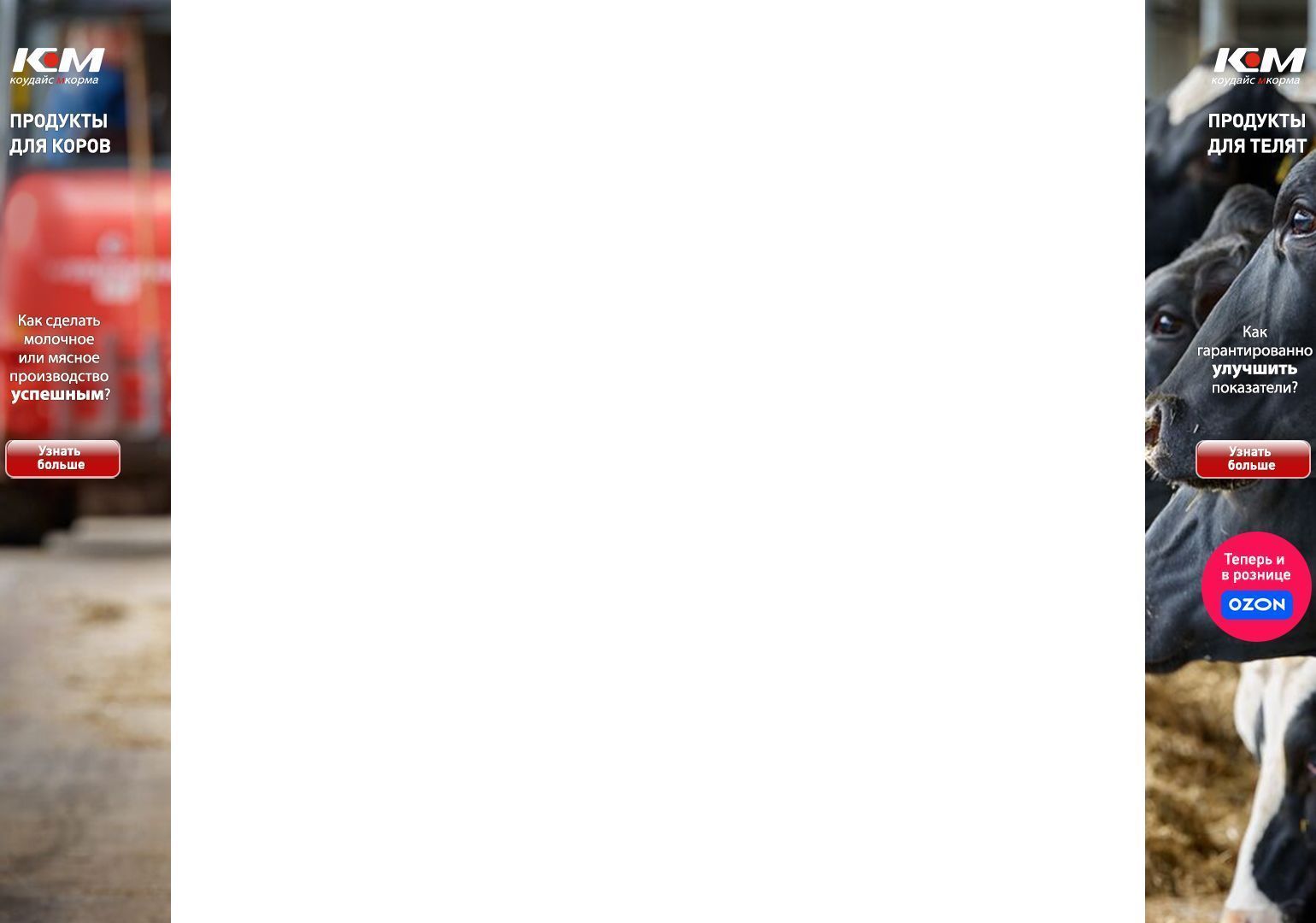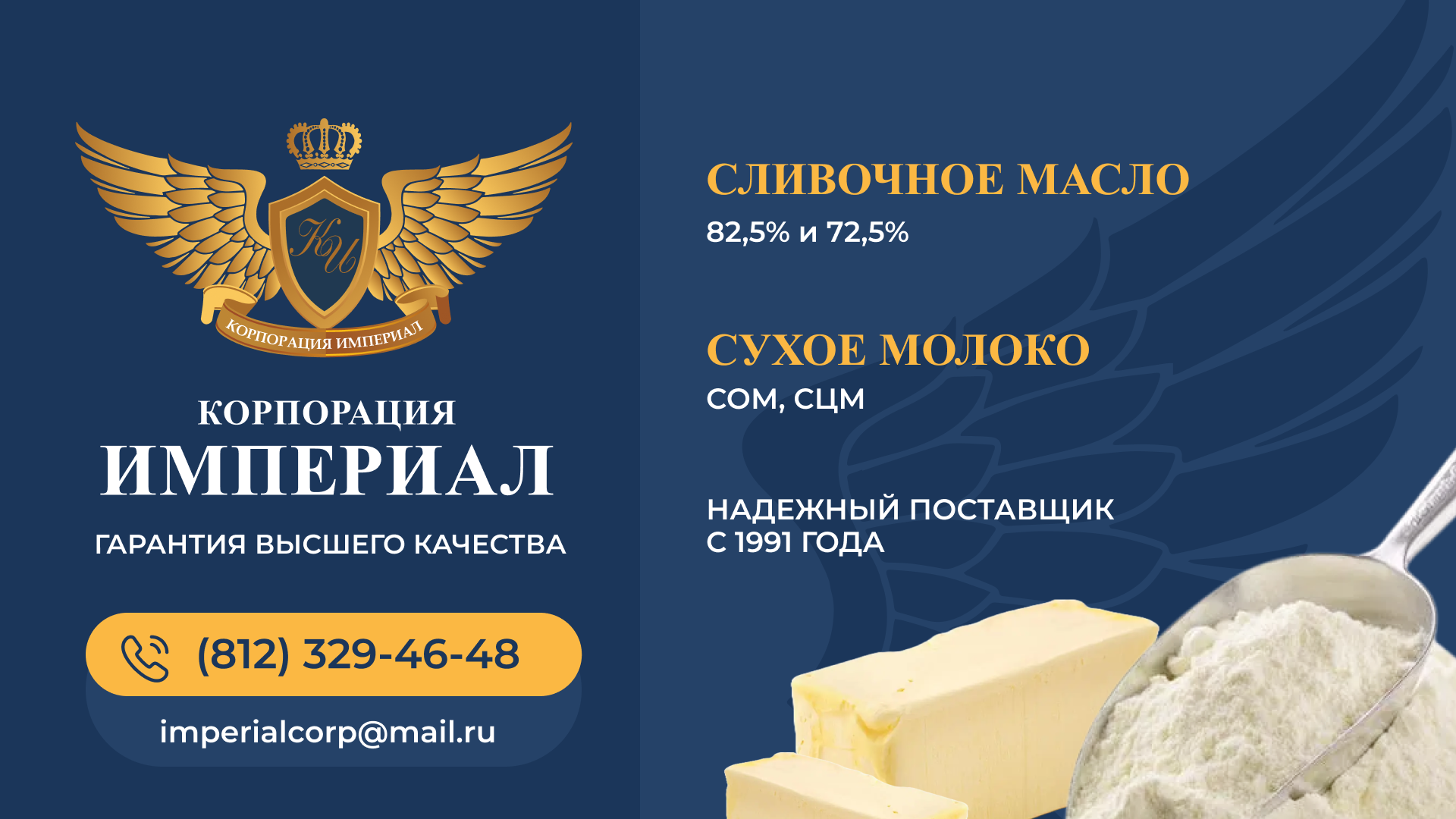Market storm: how dairy companies and retailers are coping with the coronavirus
MANUFACTURERS
“EkoNiva” is the largest milk producer in Russia, which is also actively developing processing and production of finished dairy products. In 2019, milk production by farms of “EkoNiva” exceeded 700 thousand tons.
“EkoNiva” is currently creating a special program to reduce the risk of employees becoming infected with coronavirus. This was stated in an interview with The DairyNews by the General Director and owner of the agricultural holding Stefan Duerr.
- For us, the main task now is to ensure that employees on farms and factories do not get sick with the virus. We create a special program to reduce the risk of infection. We are also making a backup plan for how the work will be organized if we suddenly have to send employees to quarantine", said Stefan Duerr.
He also commented on the panic that has developed around the shortage of products on the shelves of stores.
- I would like to appeal to all people: the more we panic, the more we create conditions for possible shortages and price increases. Panic has never helped to win in a difficult situation. Only calm and sanity, - said the head of “EkoNiva”.
Earlier this week, “Vedomosti”, with reference to the operational headquarters in Moscow, reported that the capital might be closed for quarantine. This information was later refuted by sources in the city hall, but it is still potentially possible to close Moscow for entry and exit - at the same time, the city itself is home to a number of important production sites, including the largest plant (2nd place in the DIA rating ) for milk processing - Lianozovsky dairy plant.
Most of the companies surveyed by The DairyNews reacted calmly to the introduction of high alert and notified that some employees from office centers were sent to work in home office mode.
In particular, PepsiCo, which owns Lianozovsky dairy plant and Tsaritsynsky dairy plant, stressed that “Our enterprises operate in the usual uninterrupted mode: they produce products in accordance with accurate and effective planning of deliveries to our customers".
Another multinational leader in the recycling segment, Danone, introduced precautionary measures in the form of restrictions on the number of visitors to office and production sites, as well as providing employees with disinfectants and sanitizers in all premises.
Valio, which is developing its own factory in Yershovo near Moscow, has offices both in Moscow and in Saint Petersburg.
- At the moment, the company is trying to limit the participation of employees in mass events as much as possible and reduce the number of personal contacts. Guided by the principles of socially responsible running of business, Valio in Russia has already implemented a number of preventive measures, told in the company. - In particular, office employees are transferred to remote work, all events involving employees, as well as business trips and meetings are canceled. At the Valio production site, measures of increased control over the health of personnel have been implemented, including measuring the body temperature of all people entering the plant. Third-party visits to the production site are temporarily restricted, as well as the movement of employees between offices.
Valio also noted that the company's requirements for the quality and safety of food and its ingredients remain strict. At the same time, all Valio plants - their own site in Moscow region, plants in Finland and Estonia, as well as partner sites of Valio in Russia - are operating normally and continue to produce products. The concern and its subsidiaries are doing everything possible to keep the situation under control. The company has developed a plan of measures in case the situation with the spread of the virus worsens.
As it became known, such measures were introduced in a number of regional companies.
The Central office of one of the largest food producers in Russia, KOMOS GROUP, is located in Udmurtia, where a high - alert regime was recently introduced. The company informs about the introduction of a special access regime for the enterprises of the group, as well as about minimizing business trips and trips in Russia. All necessary meetings are held online whenever possible.
The press service of KOMOS stressed that on March 10, 2020, the managing director of the holding Andrey Shutov signed an order "On the introduction of additional preventive measures against the spread of coronavirus", which applies to all enterprises of the agricultural holding. The order temporarily cancels attendance by employees all training events, seminars, exhibitions and conferences. All business trips between the agricultural holding companies are minimized: meetings are converted to conference and video formats.
"Due to the threat of spreading infections, the order canceled the winter stage of the XII Spartakiad of KOMOS GROUP LLC enterprises, which was supposed to be held last Friday, on March 13. Yes, the company suffered losses in connection with this decision, but we have no right to risk the health of 13.5 thousand of our employees, as well as the well-being of their relatives and colleagues", commented Andrey Shutov.
In addition, on March 16, it was decided to temporarily switch all employees of the Moscow office to remote work for a period of two weeks. This is due to the fact that the capital is a potentially dangerous city in terms of spreading the virus.
Specialists of the business protection department have introduced a mode of monitoring of foreign trips of KOMOS GROUP employees for personal purposes. All employees of the agricultural holding who have returned from countries where cases of coronavirus have been reported are recommended to work from home with remote access for 14 days.
The company "Molvest", whose production sites processed almost 500 thousand tons of milk in 2019, stressed that they are introducing all necessary precautions to fight against coronavirus.
“All employees who can be switched to remote work are now gradually moving to the home office mode. These are individual cases - designers, advertising specialists. It is necessary to understand that we are a manufacturer of food products and despite the high level of automation, people must maintain the equipment", said Anatoly Losev, General Director of “Molvest”, saying that in the near future thermal imagers will be installed at the entrance to the enterprise, and employees with temperature will not be allowed to work.
"We have introduced daily monitoring of the state of employees, in addition, business trips are minimized - trips are saved only in Russia in the most necessary cases", said Anatoly Losev.
RETAIL
X5 Retail Group's stock prices jumped by 9.96% to ₽1811.7 at 11: 35 Moscow time, according to data from the Moscow exchange. Shares of the chain “Magnit” are growing by 3.85% to ₽2872. The global depositary receipts of “Lenta” rose by 9.95% to ₽149.2.
Retailers, as well as manufacturing companies, in accordance with the orders of the authorities, release employees who have arrived from business trips to countries recognized as dangerous for coronavirus for 14 days of quarantine. It is too early to talk about the full transition of employees not involved in operational processes, admit in the press services of the retail chains.
Stores and logistics companies aim to ensure uninterrupted supply throughout the country. For example, “Magnit” yesterday announced the transition to a round-the-clock delivery mode in Moscow and Moscow region.
The DairyNews also spoke to the AMART - Association, which unites small retail. According to CEO of AMART Grigory Pavlov, the decline in the ruble exchange rate already affects both the cost of imported products in daily demand and the selling prices of Russian suppliers.
- We predict that, as in previous crises, fruit and vegetables will first become more expensive. Similarly, we can expect an increase in selling prices for non-food products, since there are a lot of imported products among them. As for the Association of Retail Stores (AMART), a number of our partner stores received notifications from their suppliers about price increases, for example, for household chemicals - on average from 3 to 7 percent, for dairy products – on average from 2 to 5 percent, - said Grigory Pavlov.
The press service of “Magnit” reported that on March 17, 2020, the retail chain began to switch part of its staff to a remote format of work. In addition, a special regime is being introduced in the offices of the company. This will minimize the threat of the spread of the coronavirus.
- It is expected that only about 50% of office staff will temporarily work from home — these are those who can technically perform their functions remotely. Pregnant employees of the company and specialists over 50 years of age will necessarily switch to the remote format. At the same time, there will be no changes to the payroll of employees who have switched to remote work. The staff who cannot work remotely due to the specifics of their duties received recommendations on compliance with prevention measures, stressed in the company “Magnit”.
The press service also noted that against the background of growing demand for essential goods, “Magnit” increased shipments from distribution centers to stores by 20% across the entire product range. The company increased shipments of essential goods, including cereals, flour, sugar, sunflower oil, canned food, baby food, condensed milk, household chemicals and personal hygiene products by 30%. These precautionary measures are aimed at ensuring that products are always available on store shelves. The retailer has introduced preventive measures in distribution centers to ensure their smooth operation. All warehouse staff, as well as truck drivers, undergo daily medical examinations. The number of measures for disinfection of warehouse premises has been increased, and complexes are equipped with antiseptics everywhere.

